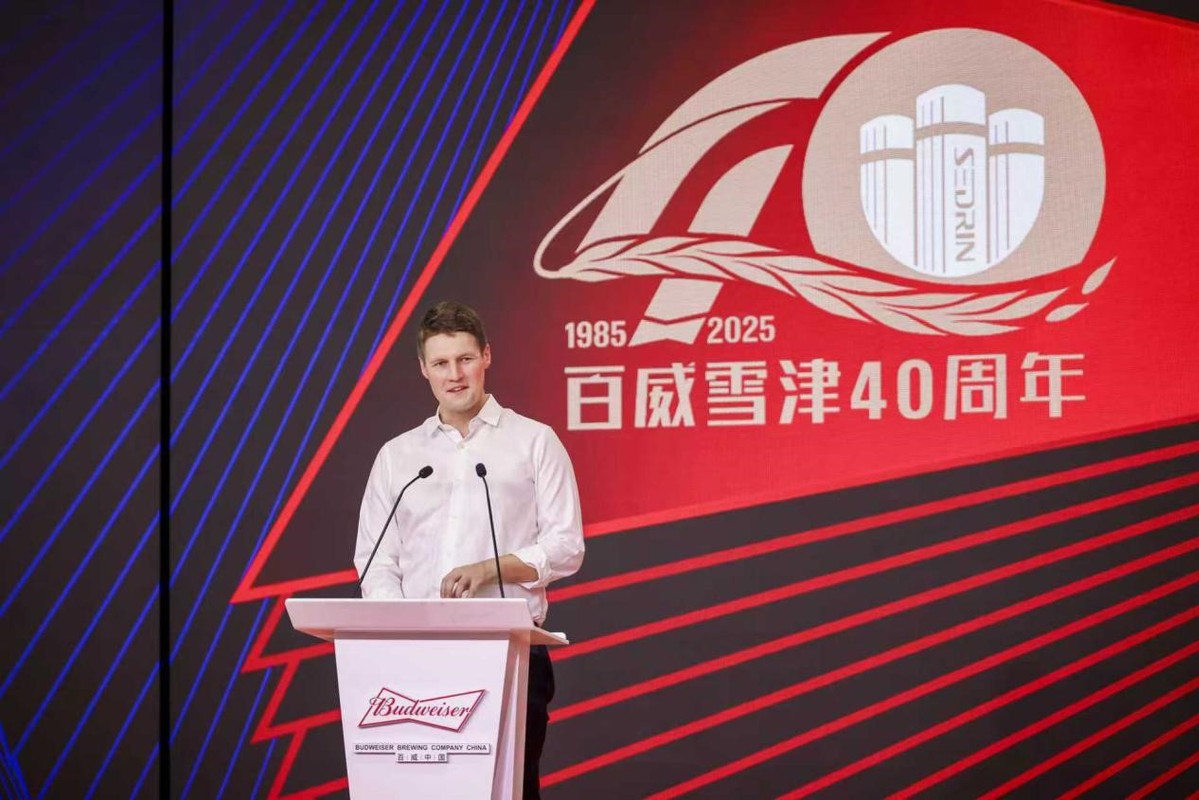Budweiser China builds on Putian brewery to boost local economy


Budweiser China, a subsidiary of Budweiser Brewing Co APAC Ltd, will continue to invest in China - one of its largest markets globally - as the market increasingly shapes the group's production network and growth strategy, said a senior executive.
One of its flagship sites, Budweiser Sedrin Brewery in Putian, Fujian province, is among the world's largest single-site breweries in terms of production capacity. Since its establishment 40 years ago, the facility has supported the city's economic development by attracting related industries, generating employment and promoting a "beer plus tourism" model through hosting festivals and visitor programs.
Craig Katerberg, chief legal and corporate affairs officer at Budweiser APAC, said that the Putian facility's role in developing local supply chains and industrial clusters align with its long-term strategy in China, where beer consumption remains one of the largest globally.
"We will continue our investment to develop and promote the growth of the local beer industry in Putian," said Katerberg, adding that the Budweiser Sedrin Brewery is one of its parent group AB InBev's key breweries.
After decades of development, Budweiser Sedrin Brewery, as a premium production base for AB InBev's eight major beer brands, has become a model for smart manufacturing and sustainability, incorporating 5G and artificial intelligence-enabled processes and operating as an advanced automated factory.
The site, complete with a beer museum, receives more than 80,000 visitors annually, including government officials, industry representatives and business partners looking to gain insights into its operations.
"For years, we share our best practices not only with our value chain partners, but also with other industries," said Katerberg. "Our success here inspires progress and prosperity far beyond our walls, as we believe in growing with our communities."
Budweiser China has fully achieved a chain effect in their supply networks, with each link acting as both partner and customer, including packaging, logistics and hospitality businesses, said Yuan Yue, secretary-general of beer branch of China Alcoholic Drinks Association.
In terms of technological innovation, the industry has developed a one-stop model from basic research to industrial application, creating high-quality production clusters in their host cities and regions, said Yuan.
Guo Xin, a marketing professor at Beijing Technology and Business University, said the beer market is undergoing a transformation driven by both premiumization and a growing focus on health, a shift that has not only improved product quality but also better met consumers' pursuit of a healthy lifestyle.
Encouraged by government policies and consumption upgrade, innovative categories such as craft beer and non-alcohol beer have grown rapidly, catering to the increasingly diverse tastes of younger consumers, she added.




































